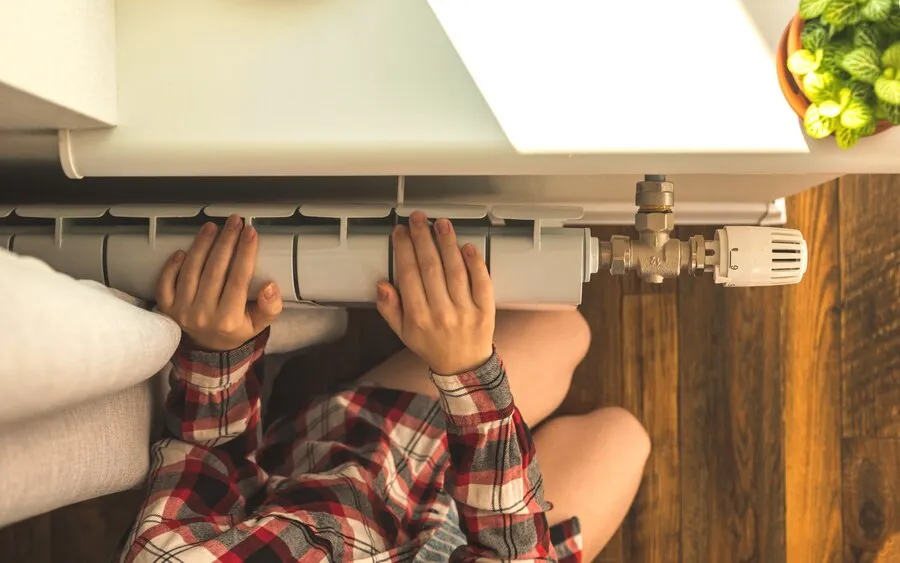Table of Contents
When the temperatures plummet, a reliable heating system becomes not just a luxury but a necessity. Selecting the right heating solution is critical for ensuring comfort during the chilly months and can profoundly impact your energy bills and environmental footprint. With myriad options, from the classic warmth of a furnace to the modern efficiency of heat pumps, homeowners face the intricate task of balancing initial costs with long-term benefits.
Families and individuals have distinct needs when it comes to heating solutions. The right heating system can transform a cold room into a cozy retreat while offering substantial long-term cost savings. This comprehensive guide navigates through the diverse landscape of heating systems, equipping you with the knowledge needed to discern the most efficient and cost-effective option tailored to your home’s unique needs.
Key Takeaways
- Identifying your home’s most efficient heating system can lead to significant cost savings.
- Understanding the pros and cons of different heating systems helps make an informed decision.
- When selecting a heating system, consider factors like climate, home size, and energy efficiency.
Introduction to Heating Systems
Heating systems are integral to home comfort, especially during winter. Deciding on a heating system is more than simply heating space; it’s about optimizing for efficiency, sustainability, and cost-effectiveness. The marketplace offers a variety of choices, each bringing its own set of advantages and considerations. From traditional heating solutions like furnaces to innovative systems such as heat pumps, the range of options requires a comprehensive understanding to select the best fit for your home’s requirements.
Overview of Furnace Types
Furnaces remain a popular and trusted heating option. Each type of gas, electric, and oil variant caters to different homeowner priorities and regional needs. Gas furnaces operating via natural gas are known for their cost-effective fuel options and high heat output, making them highly efficient in colder climates. Electric furnaces, while slightly costlier over time due to electric rates, offer cleaner energy usage and are easier to install. Though dwindling in popularity, oil furnaces provide robust heating and can be a practical choice where gas access is limited. Choosing the right type often hinges on availability, cost, and environmental considerations. Whether you’re contemplating a Furnace Install Denver or exploring other models, comprehending the advantages and limitations of each type is fundamental in making an informed choice.
Understanding Heat Pumps
Heat pumps are heralded for their energy efficiency and dual heating and cooling functionality. Ideal for moderate climates, heat pumps transfer heat rather than generating it through fuel combustion. This process significantly reduces energy consumption compared to traditional methods. With the ability to reverse their operation, heat pumps serve as a central cooling system in the warmer months. The U.S. Department of Energy offers a comprehensive guide to understanding the mechanics and benefits of these systems, highlighting their role in efficient energy use and cost savings.
Benefits and Drawbacks of Electric Heaters
Electric heaters provide simple heating solutions, ideal for smaller spaces or as a secondary source. Known for their ease of installation and low maintenance, they are a convenient choice for many homeowners. However, operational costs over time can add up due to higher electricity prices, especially in regions with high electric rates. Despite these costs, electric heaters offer precise temperature control and quick heating, making them beneficial for quick warmth when needed.
Efficiency and Costs of Different Heating Systems
Evaluating a heating system’s efficiency is critical in determining its overall cost-effectiveness. Initial installation costs, fuel expenses, and ongoing maintenance must all be considered. While some systems have a higher upfront cost, they may offer considerable savings on energy expenses over their lifespan, justifying the initial outlay. Energy efficiency results in lower utility bills and reduces environmental impact, making it an attractive feature for eco-conscious homeowners.
Choosing the Right Heating System for Your Home
Selecting the best heating system involves understanding your home’s climate, size, and specific heating preferences. Systems that provide efficient heating for one environment may not be ideal for another. It’s beneficial to seek professional guidance to weigh the various factors, ensuring a balance between cost, comfort, and sustainability. Consumer Reports provides an in-depth resource with expert advice and comparisons to aid in this crucial decision-making process.
Also Read: The Art of Pool Maintenance: Keeping Your Backyard Oasis Pristine
Maintenance Tips for Longevity
Proper maintenance ensures that your heating system operates effectively and has a prolonged life. Regular inspections by professionals can prevent minor issues from escalating into significant problems. Annual maintenance checks, such as filter replacements and system cleanings, are vital to maintaining efficiency and safety. Additionally, keeping an eye on the performance and addressing any irregularities promptly can lead to significant savings and uninterrupted comfort throughout the heating season.
Final Thoughts
Choosing the right heating system necessitates a well-rounded consideration of efficiency, cost, and environmental impact. By comprehensively understanding the available options, homeowners can select a heating system that meets their immediate needs and aligns with their long-term goals. Whether upgrading current systems or installing new units, informed decisions can enhance comfort, substantial cost savings, and a more sustainable household energy footprint.




